Kidney disease often develops silently, showing symptoms only in later stages. Recognizing the early signs of kidney disease can help prevent serious complications. Our kidneys are tiny but mighty. Each day, they filter around 50 gallons of blood, remove waste, regulate blood pressure, and even help make red blood cells. “Here’s the thing — kidney disease is often known as a ‘silent threat’ because it can develop without any obvious symptoms.” Why? Because most people don’t notice anything wrong… until it’s almost too late.
Many signs of kidney disease are subtle. You might brush them off as stress, aging, or something minor. But catching these early could literally save your life.
Here are 9 warning signs of kidney disease that are easy to miss — but you definitely shouldn’t.
1. Feel More Tired Than Usual

Still feel drained even after sleeping for 8 hours or more? Feeling off might not just be the usual Monday slump.
If your kidneys aren’t doing their job, waste and toxins can start to pile up in your blood, affecting how you feel overall. This leads to fatigue, weakness, and trouble concentrating — a condition sometimes referred to as “brain fog.”
Did you know? A failing kidney can cause anemia, which further zaps your energy and makes even simple tasks feel overwhelming.
2. Skin Feels Itchy and Dry
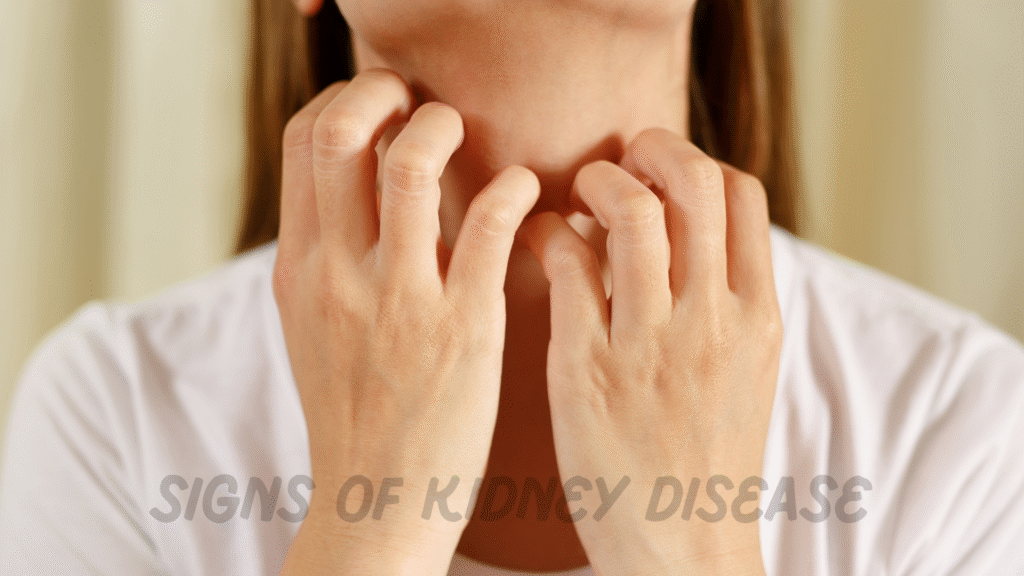
Occasional itchiness? Not a big deal. But determined dry, prickly skin can signal something deeper.
Energetic kidneys reserve the exact balance of minerals in your blood. When they’re struggling, phosphorus levels can rise, leading to irritating skin symptoms that no lotion can fix.
Itchiness that starts to affect your sleep or focus should never be ignored.
3. Puffy Eyes
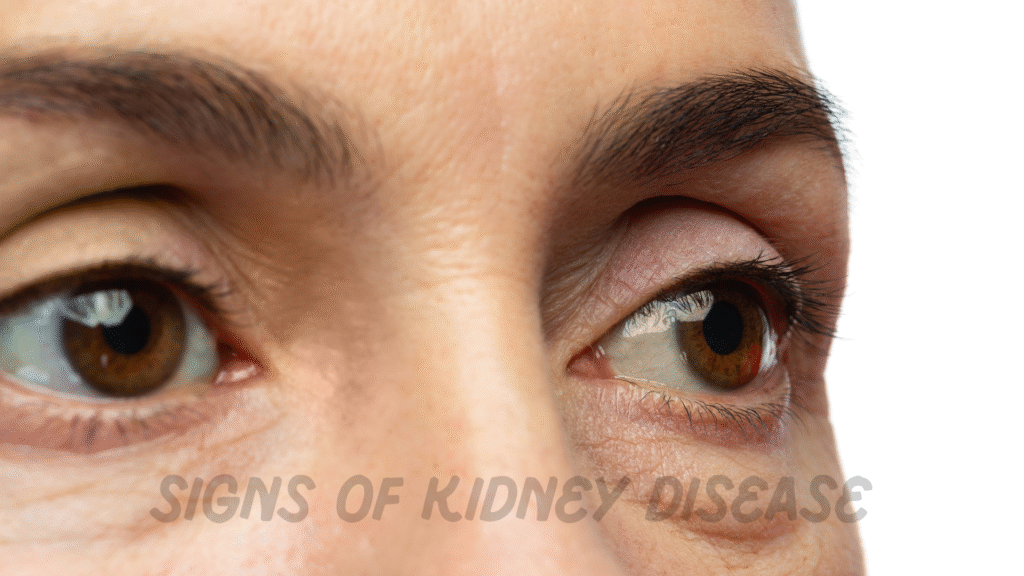
Those “tired eyes” might not be from binge-watching shows.
When kidneys leak protein into the urine — something they’re not supposed to do — it often shows up as persistent puffiness around the eyes. This swelling is due to protein loss, and it’s one of the earliest signs of kidney trouble.
If your under-eye bags are stubborn and not going away, it’s worth checking with a doctor.
4. Ankles and Feet Swollen
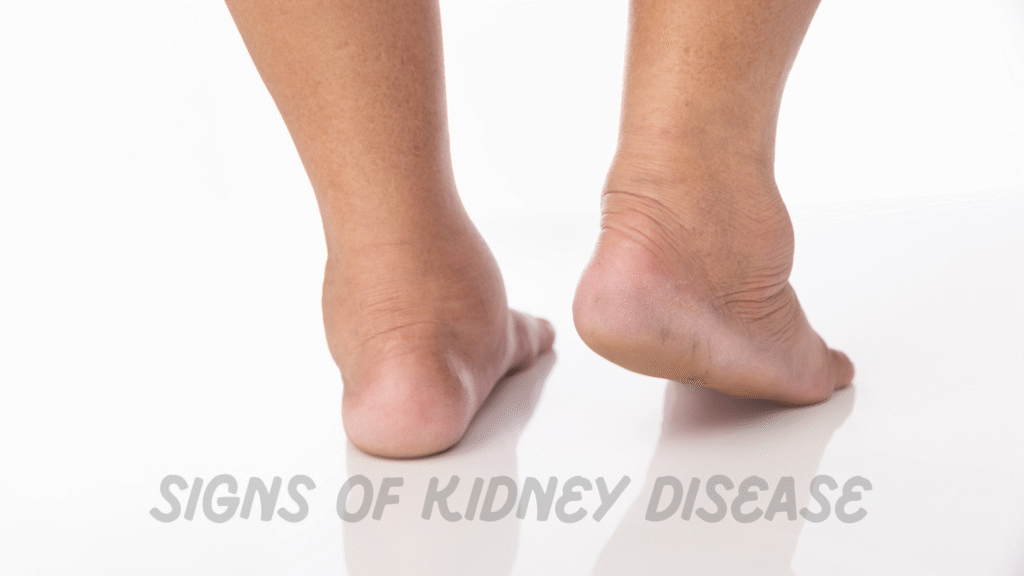
Puffiness in your lower limbs can be caused by many things — warm weather, saline food, standup too long. But if it’s happening often, your kidneys may be having a hard time balancing sodium levels and removing excess fluid.
This kind of swelling can also be linked to heart disease and liver problems, which are closely connected to kidney function.
5. Weird Urination Changes
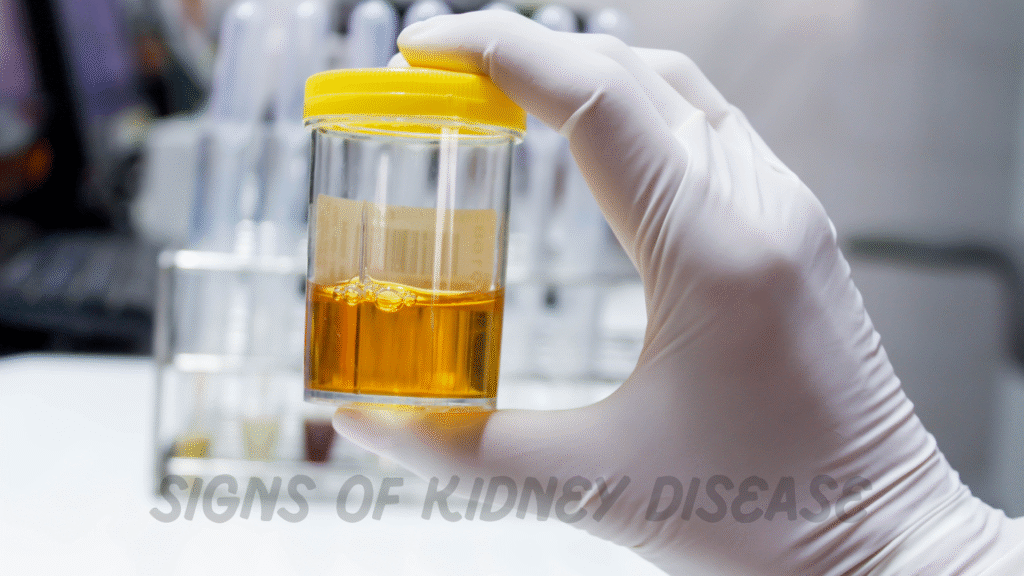
It might sound simple, but changes in your urination pattern are one of the clearest red flags.
Watch for:
- Waking up at night to pee (nocturia)
- Urine that’s foamy or bubbly (indicating protein)
- Peeing less often than usual
- Blood in the urine
- Pain or pressure while urinating
If your bathroom habits suddenly shift, don’t shrug it off — your kidneys are trying to talk to you.
6. Poor Appetite

When waste starts building up in the body, it can lead to loss of appetite, bad breath, and even a metallic taste in your mouth.
These symptoms are caused by uremia, a condition that arises when the kidneys stop filtering toxins. You might find that foods you once loved now taste strange or make you queasy.
Constant nausea or food aversions may seem unrelated, but they’re a telltale sign of advanced kidney issues.
7. High Blood Pressure
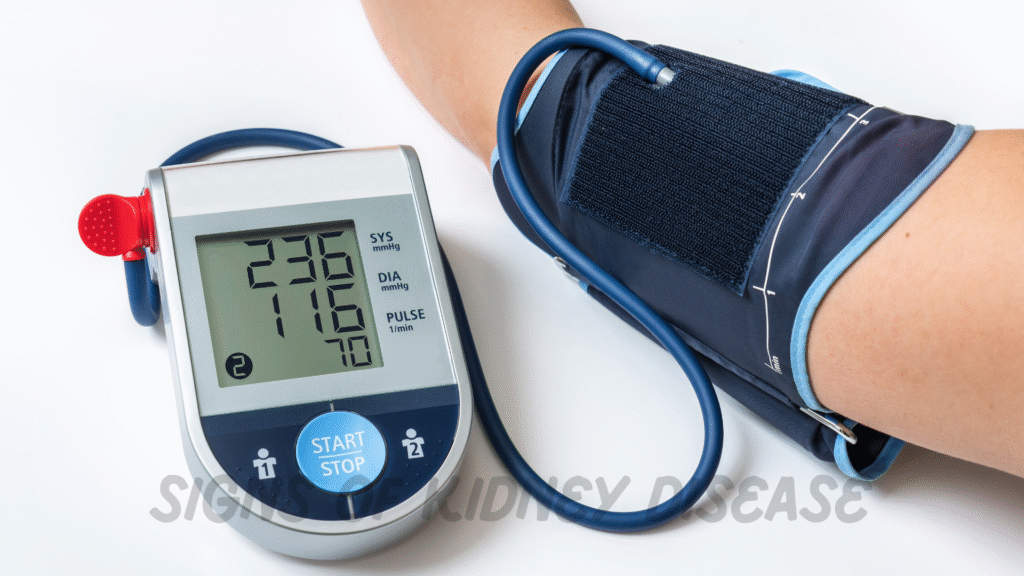
When blood pressure runs high, it puts strain on your blood vessels — even the tiny filters inside your kidneys. But what many don’t realize is that kidney damage can, in turn, push your blood pressure even higher, creating a harmful cycle. It’s a vicious cycle.
If your blood pressure is suddenly difficult to manage, or you’ve been put on medication that’s not helping, your kidneys might be part of the problem.
The kidneys and the heart are deeply connected. When one struggles, the other often follows.
8. Shortness of Breath

You don’t need to be climbing mountains to feel winded. If you’re getting out of breath while doing ordinary things like walking or talking, that’s a red flag.
Why it happens:
- Extra fluid in the lungs from kidney failure
- Anemia is a condition in which the body lacks enough red blood cells to carry oxygen effectively throughout the body.
If you find yourself gasping or unable to catch your breath, don’t chalk it up to age or being “out of shape.”
9. More Sensitive to Cold

Do you often feel cold when everyone else is fine? Kidney disease can lead to anemia, which reduces the oxygen in your blood — leaving you feeling chilled even in cozy environments.
If you’re bundling up more than usual or always reaching for an extra sweater, take note — especially if it comes with other symptoms.
Why Early Detection Is Everything
Allowing to the National Kidney Foundation, 1 in 3 adults is at danger for kidney disease, yet most won’t recognize it until things have progressed too extreme.
The good news? Early finding can stop further damage and help achieve the condition effectually. A simple urine test and blood test (to check creatinine levels and GFR) can give a clear picture of how your kidneys are working.
When Should You See a Doctor?
If you experience two or more of the symptoms above — especially on a recurring basis — it’s time to schedule a check-up. Kidney disease doesn’t usually shout. It whispers. And it’s easy to ignore those whispers until they become roars.
Don’t wait for something “serious” to happen. Trust what your body is telling you.
Final Thoughts
Your kidneys are silent champions, constantly working in the background to keep you healthy. But like any overworked team, they can only take so much before they break down. By paying attention to these early warning signs, you give yourself the best shot at staying healthy — and possibly adding years to your life.
“Look after your kidneys, and they’ll look after you.”

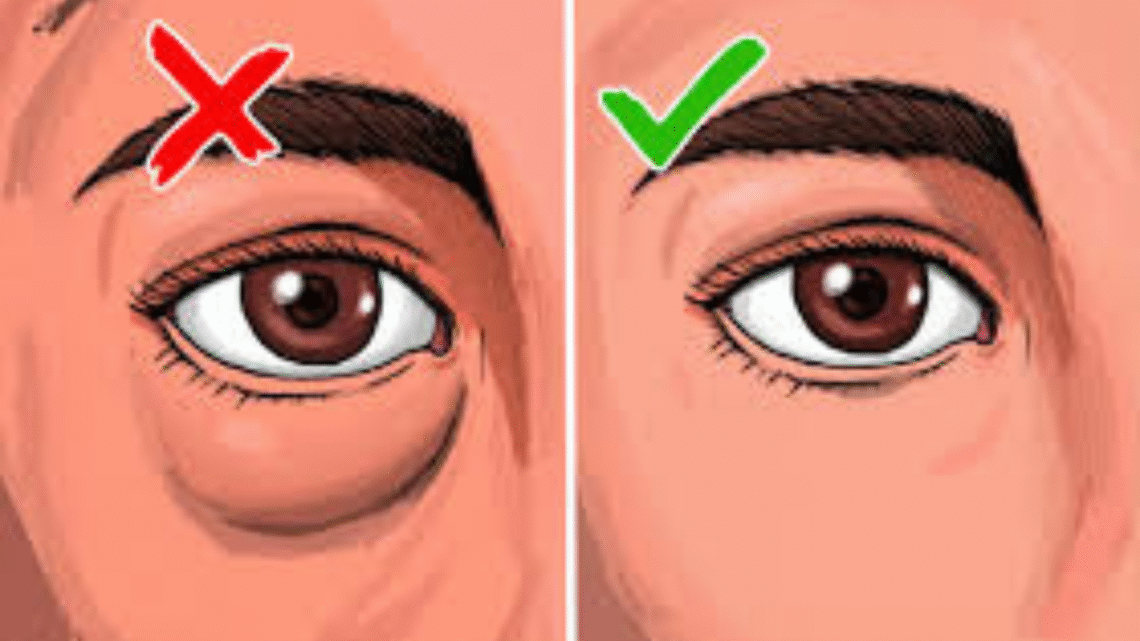
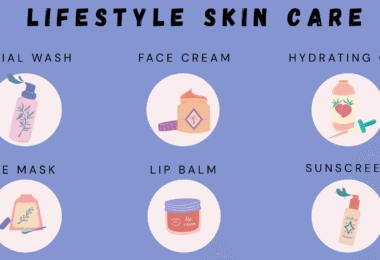





Leave a Comment